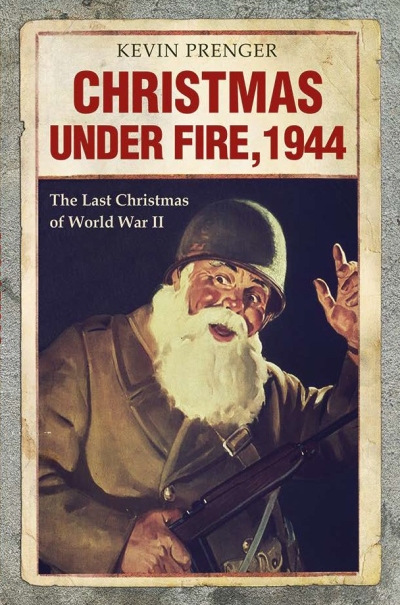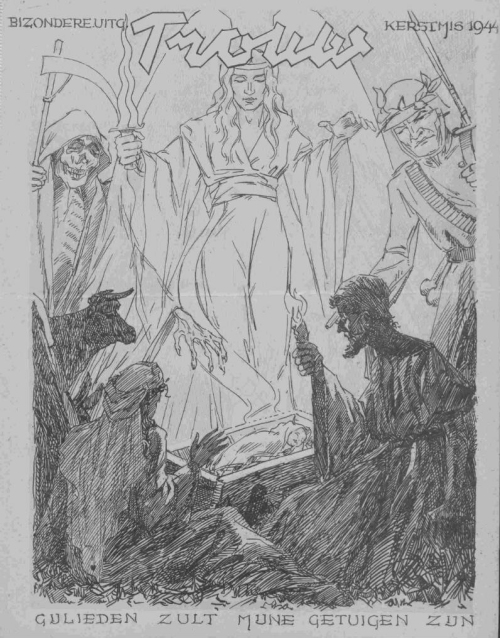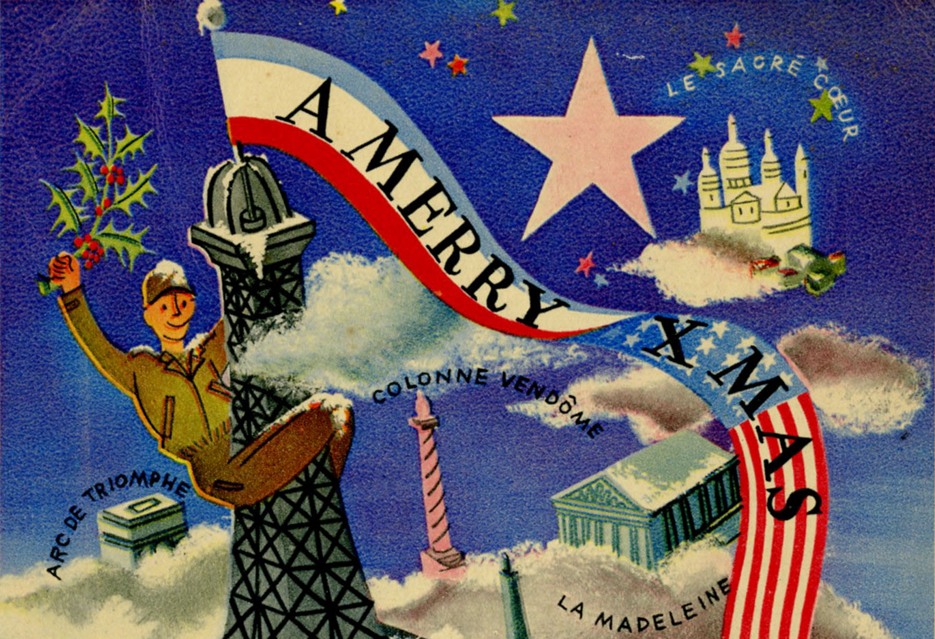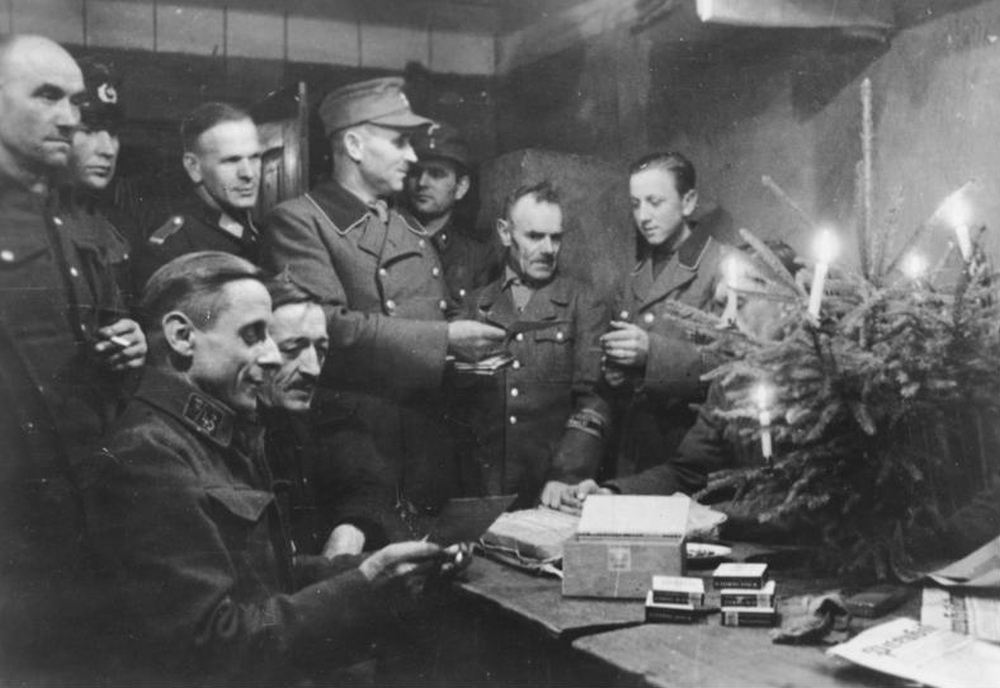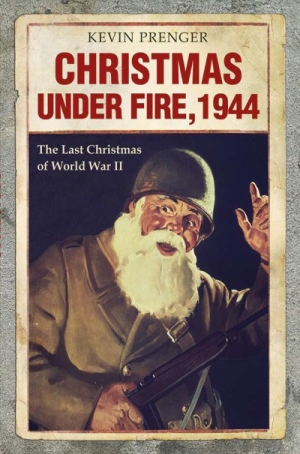| Title: | Christmas under Fire, 1944 - The Last Christmas of World War II |
| Writer: | Prenger, K. |
| Published in: | 2019 |
| Pages: | 143 |
| Language: | English |
| ISBN: | 9781087410616 |
| Omschrijving: | Here is a World War II book that is a little different from what we are used to. For once not about famous or unknown heroes, or battles and campaigns, or analyses of what caused which victory or defeat. No, this book is about Christmas and how it was celebrated, or endured, or perceived by people in the European theatre in December 1944. The 5th year of the war for many and with still no clear end in sight. Christmas was celebrated by most of the allied countries and their citizens, but also by many of the Axis nations, civilians and soldiers, good and bad. As can be gleaned from the stories it was experienced in very different ways by all those people, depending on their various situations. Many Europeans had been liberated by this time, but the war was not over, certainly not for all the soldiers active all over Europe. The author has made a wonderful compilation of many different stories and events and obviously has done extensive research in order to take us along on this historic Christmas. The book is divided into a few chapters, mainly grouping areas of events. The chapter ‘Cold Turkey in the "Bulge"’ is all about the troops and citizens fighting and living in the Belgian Ardennes at the time of the German offensive. The chapter doesn’t only tell about the Christmas celebrations, but also provides an overview of the events preceding Christmas. ‘A merry little Christmas’ is mostly about the American troops in the various locations in Europe, and also touches on some of the things that happened back in the United States at that time. ‘A new and better world’ is a relatively short chapter that looks at the situation in the United Kingdom, and ‘Kriegsweihnacht’ is about the situation in Germany. Obviously Christmas in Germany was quite different at the time, with the dictatorship and associated propaganda. Also, although the war was not ended yet, Germany by this time was a beleaguered country and the citizens were now feeling the hardship that the Nazi’s had bestowed upon all the countries they attacked in the years leading up to that point. ‘The pearl of the Danube’ (with which Budapest is meant) looks at the Russians and Hungarians specifically. The Red Army had reached Budapest by now and the situation there was also very different from the previous years. ‘Light in the darkness’ takes us to Holland, and more in particular the south of it, the part that had already been liberated by the allies. But there are also stories about the area north of the rivers, the part that was still occupied. The northwest with the major cities of The Hague, Rotterdam and Amsterdam suffered the most because of the food shortage that winter. Winter 44/45 was known as the "Hongerwinter" (famine winter). ‘Silent night’ tells the stories of prisoners of war, caught on the wrong side of the fence in the horrible camps everywhere. There are a few things about this book that make it special. First of all the wealth of first-hand reports by people that were actually there those days, taken from documentaries, books, journals and other sources. People telling where they were at the time, and how they celebrated, if at all. Then there is a wealth of resources used for research, all neatly indicated by footnotes and in an extensive index at the end of the book. All the books and articles used are listed, and also a large range of websites. Last but not least there are many events, locations and happenings described that one will not easily find in other books. Such as the memories written down by prisoners of wars, German civilians, soldiers at the Eastern front and many more. A special story is about the Christmas Mass held in the Sint Pietersberg (Mount Saint Peter) near Maastricht. A marl cave with many corridors and halls, used among others by monks known as the Brothers of De Beyart. Ultimately, when reading the book most of us will acknowledge that, whatever problems there are in the world currently, we are very lucky to live now and not back in 1944, and able to celebrate our Christmas in freedom, with friends and family. But also, like back in 1944, there are also still soldiers far away from home having to celebrate without their family. Let's keep those people who are still fighting for us in our thoughts. |
| Beoordeling: |      Excellent Excellent |
Information
- Article by:
- Francois Dumas
- Published on:
- 05-12-2019
- Last edit on:
- 20-12-2019
- Feedback?
- Send it!
Images
Related news
Christmas during the Dutch winter famine of 1944
In 1944, Christmas was celebrated for the sixth time since the Second World War had broken out on September 1, 1939. Men who often shared the same religious background fought each other to the death in sharp contrast with the old Christmas message of Peace on Earth. Christmas under Fire, 1944 tells about this last war time Christmas. Below an excerpt from this book. This part is about the Dutch winter famine of 1944.
Christmas far from home, GI’s in Europa during the Holidays of 1944
In 1944, Christmas was celebrated for the sixth time since the Second World War had broken out on September 1, 1939. Men who often shared the same religious background fought each other to the death in sharp contrast with the old Christmas message of Peace on Earth. Christmas under Fire, 1944 tells about this last war time Christmas. Below an excerpt from this book. This part is about how American GI’s shared Christmas with the Europeans that were liberated by them and about the tragedy with the Léopoldville.
Kriegsweihnacht 1944, Christmas and Nazi propaganda
In 1944, Christmas was celebrated for the sixth time since the Second World War had broken out on September 1, 1939. Men who often shared the same religious background fought each other to the death in sharp contrast with the old Christmas message of Peace on Earth. Christmas under Fire, 1944 tells about this last war time Christmas. Below an excerpt from this book. This part is about how Christmas was used in Nazi propaganda.
New book recounts the last Christmas of World War II
How was Christmas celebrated and experienced during 1944, the last year of World War II? This question is answered in the newly published book Christmas under Fire, 1944, written by the Dutch WW2 expert Kevin Prenger.
